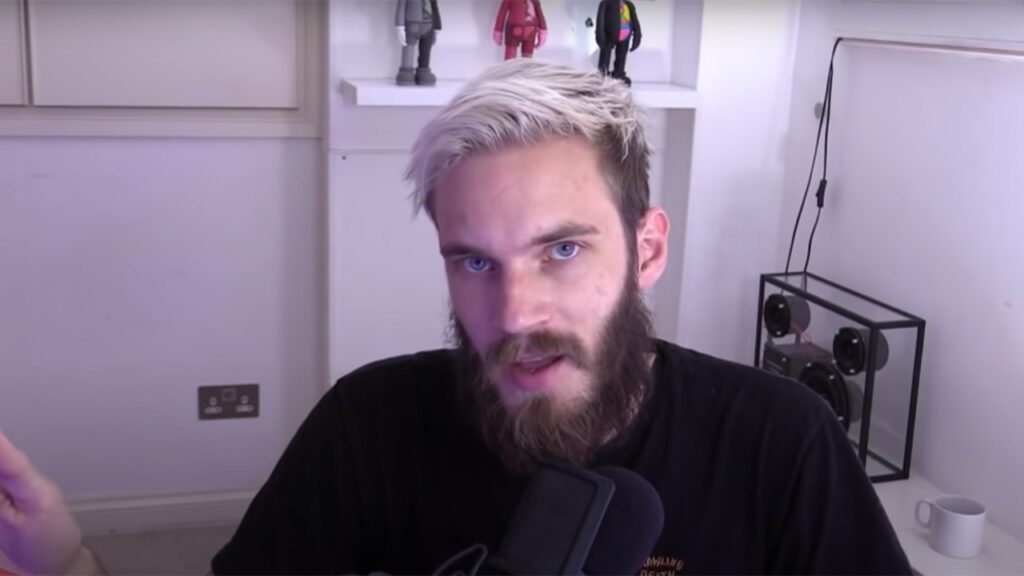The name PewDiePie has become synonymous with YouTube's most successful content creators. However, the PewDiePie incident remains one of the most controversial and widely discussed topics in the digital world. This article delves into the various controversies surrounding Felix Kjellberg, also known as PewDiePie, and explores their implications on his career, the YouTube platform, and the broader online community.
PewDiePie, with over 120 million subscribers, is one of the most influential figures in the digital entertainment industry. Despite his massive following, his career has been marred by several controversial incidents that have sparked debates about free speech, hate speech, and the responsibilities of content creators. Understanding these incidents is crucial for anyone interested in the evolution of online content creation.
This article will provide an in-depth analysis of the PewDiePie incident, examining the events that unfolded, the public and media reactions, and the long-term effects on both PewDiePie's career and the YouTube platform. By exploring these aspects, we aim to provide a balanced perspective on the controversies and their implications.
Read also:Why Standing Ovation News Matters In Todays Media Landscape
Table of Contents
- Biography of PewDiePie
- Overview of the PewDiePie Incident
- Controversial Content Analysis
- Media Reactions and Public Backlash
- YouTube's Response to the Incident
- Legal Implications and Consequences
- Impact on PewDiePie's Career
- Effects on the Online Community
- Lessons Learned from the PewDiePie Incident
- Future Outlook and Predictions
Biography of PewDiePie
Felix Arvid Ulf Kjellberg, better known by his stage name PewDiePie, was born on October 24, 1989, in Stockholm, Sweden. He is a Swedish YouTuber, comedian, and internet personality who rose to fame through his gaming content. PewDiePie began his YouTube journey in 2010, and by 2013, he had become the platform's most subscribed creator.
Personal Information
| Full Name | Felix Arvid Ulf Kjellberg |
|---|---|
| Date of Birth | October 24, 1989 |
| Place of Birth | Stockholm, Sweden |
| Profession | Content Creator, Comedian |
| YouTube Channel | PewDiePie |
Overview of the PewDiePie Incident
The PewDiePie incident refers to a series of controversies that emerged in 2017, involving offensive content and allegations of hate speech. These controversies were brought to light by a report from The Times of India, which accused PewDiePie of promoting anti-Semitic content. The incident quickly gained global attention, sparking debates about the boundaries of free speech and the responsibilities of content creators on platforms like YouTube.
Key Events
- PewDiePie used third-party contractors to create videos that contained offensive imagery.
- He faced criticism for jokes and comments perceived as anti-Semitic and racist.
- YouTube removed his videos from the Google Preferred ad program, affecting his revenue stream.
Controversial Content Analysis
The content that sparked the controversy included videos featuring offensive imagery, jokes about sensitive topics, and collaborations with questionable personalities. Critics argued that PewDiePie's content crossed the line into hate speech, while supporters defended his right to free expression.
Types of Controversial Content
- Anti-Semitic jokes and imagery.
- Collaborations with controversial figures.
- Use of offensive language and memes.
Media Reactions and Public Backlash
The media played a significant role in amplifying the controversy, with outlets like The Times of India and The Guardian publishing critical articles about PewDiePie's content. Public reactions were divided, with some condemning his actions and others defending his right to free speech. The backlash led to a significant drop in his subscriber count and ad revenue.
Media Coverage
- The Times of India accused PewDiePie of promoting anti-Semitic content.
- The Guardian published an article questioning the ethics of online content creation.
- Various social media platforms were flooded with discussions about the incident.
YouTube's Response to the Incident
YouTube's response to the PewDiePie incident was swift and decisive. The platform removed his videos from the Google Preferred ad program, citing violations of community guidelines. This decision was met with mixed reactions, as some viewed it as a necessary step to protect advertisers, while others criticized YouTube for overreach.
YouTube's Actions
- Removal from the Google Preferred ad program.
- Issuance of a formal warning to PewDiePie.
- Introduction of stricter content moderation policies.
Legal Implications and Consequences
While the PewDiePie incident did not result in any legal action against him, it highlighted the potential legal risks associated with controversial content. Content creators must be mindful of laws related to hate speech, defamation, and copyright infringement when producing content for public consumption.
Read also:Is Kendall Jenner A Supermodel Unveiling The Truth Behind Her Success
Key Legal Considerations
- Hate speech laws vary by country and jurisdiction.
- Defamation claims can arise from false or damaging statements.
- Copyright infringement can occur when using third-party materials without permission.
Impact on PewDiePie's Career
The controversy had a significant impact on PewDiePie's career, both positively and negatively. While he lost some subscribers and ad revenue, his loyal fanbase rallied behind him, leading to a surge in donations and merchandise sales. The incident also prompted him to focus more on family life and personal interests.
Positive and Negative Effects
- Increased public awareness and media coverage.
- Loss of ad revenue and sponsorships.
- Strengthened relationship with core fanbase.
Effects on the Online Community
The PewDiePie incident had far-reaching effects on the online community, sparking discussions about the role of content creators in shaping public opinion and the responsibilities of platforms like YouTube. Many creators began re-evaluating their content strategies to avoid similar controversies.
Community Reactions
- Increased scrutiny of content creators' actions and statements.
- Growing awareness of the importance of responsible content creation.
- Debates about the balance between free speech and hate speech.
Lessons Learned from the PewDiePie Incident
The PewDiePie incident serves as a valuable lesson for content creators, platforms, and audiences alike. It highlights the importance of responsible content creation, the need for clear community guidelines, and the impact of public reactions on individual careers and platforms.
Key Takeaways
- Content creators must be mindful of the potential consequences of their content.
- Platforms should establish and enforce clear community guidelines.
- Audiences play a crucial role in shaping the digital content landscape through their reactions and engagement.
Future Outlook and Predictions
Looking ahead, the PewDiePie incident is likely to influence the evolution of online content creation and platform policies. As the digital landscape continues to grow, content creators and platforms must work together to create a safer and more responsible environment for all users.
In conclusion, the PewDiePie incident remains a pivotal moment in the history of online content creation. By understanding its causes, effects, and implications, we can better navigate the complexities of the digital world and contribute to a more informed and responsible online community.
Kesimpulan
The PewDiePie incident is a complex and multifaceted topic that touches on issues of free speech, hate speech, and the responsibilities of content creators. This article has explored the various aspects of the controversy, providing a comprehensive analysis of its causes, effects, and implications. We encourage readers to engage in thoughtful discussions about these issues and to continue exploring related topics.
We invite you to share your thoughts and opinions in the comments section below. Additionally, feel free to explore other articles on our site for more insights into the world of digital content creation and online communities.

